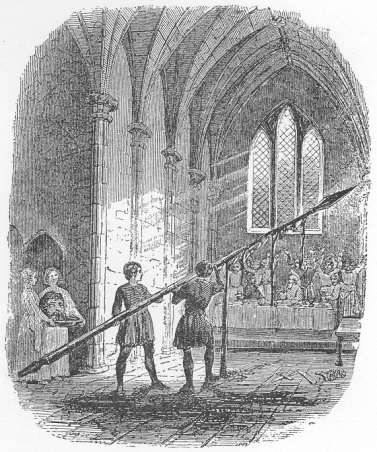Transcribed from the 1902 T. Fisher Unwin edition by David Price,
THE MABINOGION
TRANSLATED FROM THE RED BOOK OF HERGEST BY LADY CHARLOTTE GUEST
VOL. I. LONDON
T. FISHER UNWIN
11 PATERNOSTER
BUILDINGS. MXCII
p. 9INTRODUCTION.
More than half a century ago Lady Charlotte Guest gave The Mabinogion to English readers in the form which, probably, will ever most delight them. Her transcript of the Red Bookof Hergest was not perfect, she found the meaning of many a Welshphrase obscure, but her rendering is generally very accurate; andthe Celtic tales retain in their new dress much of the charm, which so often evades the translator, of a perfect style formed by generations of narrating.
The Red Book of Hergest, from which The Mabinogion are taken, is a collection of tales and poems written during the fourteenth century. Some of the Mabinogion in it have been reconstructed in Norman and Crusading times, but they contain reminiscences of a more distant period, often but half understoodby the later story-teller. Among these are “The Dreamof Rhonabwy,” “The Lady of the Fountain,” and “Peredur the son of Evrawc”—the three which happen to come first in the Red Book. These are Christian, but with distant glimpses of p. 10Celtic heathenism. The adventures are all grouped around Arthur and his knights; and a kind of connection is given to the three tales by the presence of Owen and his mysterious ravens.
Others, especially the four Mabinogion properly so called and the Tale of Lludd and Llevelys, are far older; they are older than Christianity, and older than Arthur.
In this new edition of Lady Guest’s translation I have put, in the form of footnotes, what appears to me to be a more correct or a more literal rendering of some of the passages of the Welsh. This course makes it unnecessary to tamper with the charming translation that has become a classic of the Englishlanguage.
I am very grateful to the Principal and Fellows of Jesus College for access to the Red Book, to Dr J. Gwenogvryn Evans forpermission to use his edition and to Lord Wimborne (the Ivor of Lady Guest’s dedication) for information kindly given.
OWEN EDWARDS.
Lincoln College,
Oxford, 1st March 1902.
p. 11TO IVOR AND MERTHYR
My Dear Children,
Infants as you yet are, I feel that I cannot dedicate more fitly than to you these venerable relics of ancient lore, and I do so in the hope of inciting you to cultivate the Literature of “Gwyllt Walia,” in whose beautiful language you are being initiated, and amongst whose free mountains you were born.
May you become early imbued with the chivalric and exalted sense of honour, and the fervent patriotism for which its sons have ever been celebrated.
May you learn to emulate the

